Digital Slavery of Humans and the Path to Inner Liberation
Escape from reality, isolation, lack of self-awareness, digital slavery, and the loss of the greatest meaning. These were the topics of the Identity and Values meeting held on November 9, 2024, at Ayb School.
The discussion's title was "The Role of Technology and Social Media in the Crisis of Meaning." The session was led by Fr. Mesrop Aramian, who had invited the principal of Dilijan Central School, publisher Aram Mehrabyan, and screenwriter Narek Margaryan to the discussion.
Mediamax attended the meeting and recorded some key moments.
Digital Slavery and Stolen Time
Fr. Mesrop Aramian: Today, we are witnessing a sharp deterioration in the mental health of humanity, and technology plays a very serious role in it. Specifically, we see this in the spiritual state of humans. Their spiritual world is completely shattered, and the time to reflect on it has been stolen from them.
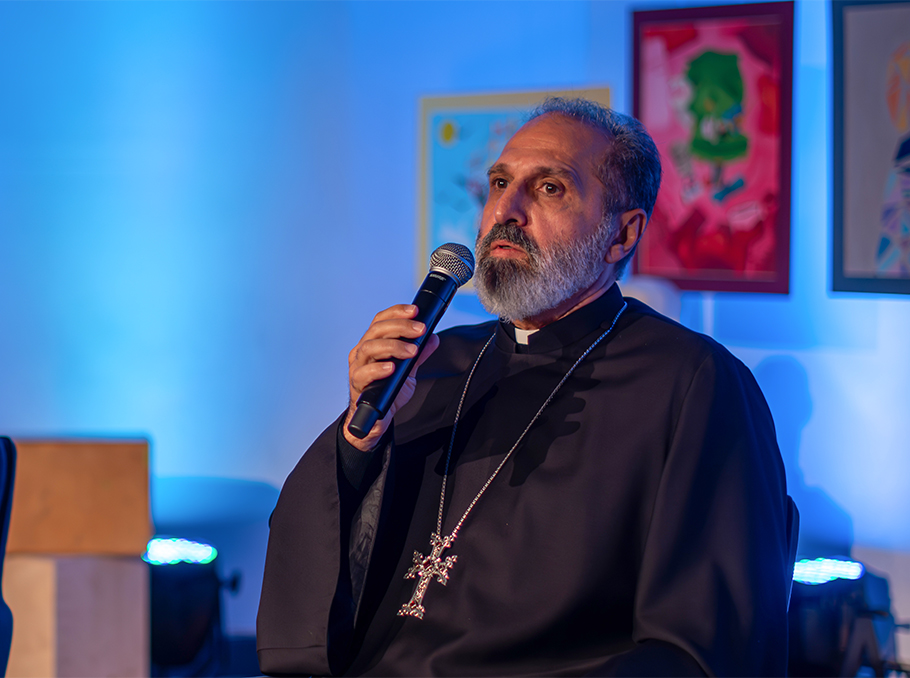
Today, we talk about digital slavery, and indeed, there is no opportunity left for a person to have freedom. A serious struggle is needed for a person to free up time for anything. We talk about the crisis of meaning, but finding meaning and the entire process of meaning-making is not something that happens in a TikTok moment. Time is needed for a person to delve into issues, but humanity is deprived of this opportunity today.
Narek Margaryan: Recently, my IT colleagues did a study and found the person on Armenian TikTok who had put the most number of likes. He had put 709,000 likes throughout his use of TikTok. We tried to calculate—if this person spends half a minute on each like, he had spent almost a year of his life just clicking those likes. It's a scary number. It's terrifying how someone spends their short life.
It’s very important to understand how we use technology. Unfortunately, there will always be people who abuse these tools
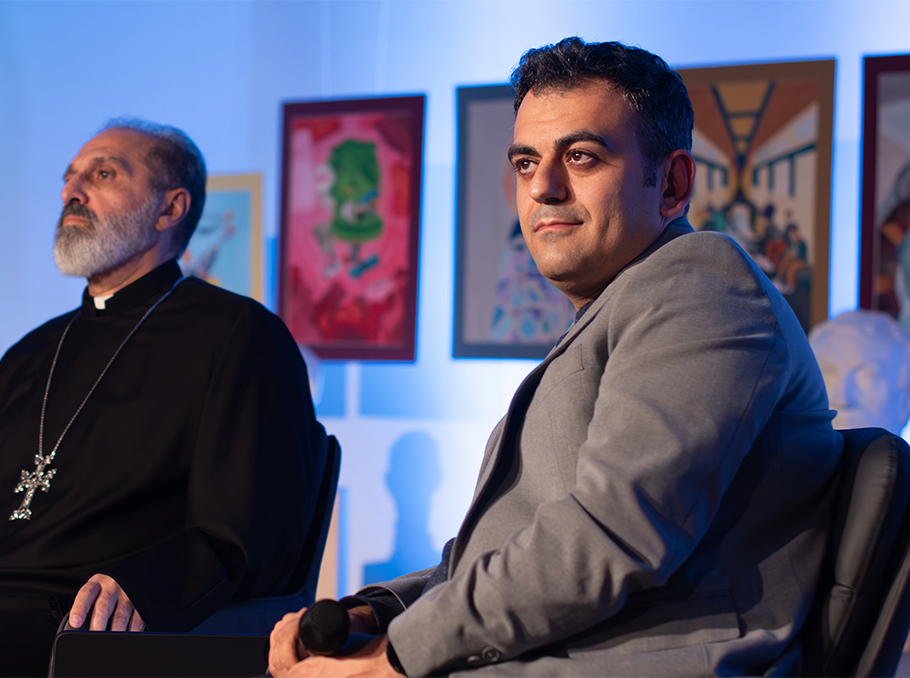
I also feel the enslavement of humans by technology on myself. YouTube’s algorithm is my "boss," which doesn't allow me to take a proper vacation. It pushes me to structure my life in a way that I post videos on time, otherwise the algorithm won’t provide the desired views.
Algorithms are designed to predict our behavior. For example, YouTube knows that if it shows me this one video, I’ll watch it and spend more time on the platform. Unfortunately, algorithms don’t just predict our behavior for innocent reasons.
When the cooperation of Cambridge Analytica with Facebook started to be investigated, it was revealed that Brexit in the UK was largely influenced by the personal data generated by Facebook, showing each person the ad that would have the greatest impact on them.
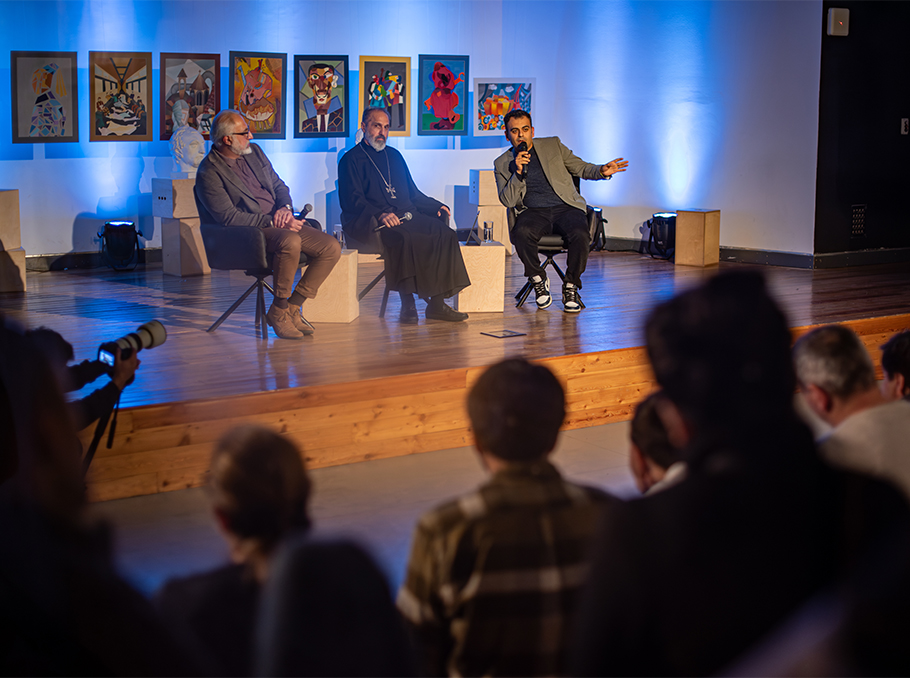
A similar case was revealed during the elections in Trinidad and Tobago. Calculations showed that if a certain group of male voters aged 18-25 didn’t participate in the elections, candidate X would win. A corresponding social campaign was developed that targeted this group, leading them to decide not to vote, and candidate X won.
This use of technology has a huge impact on our daily life and future.
Education and Culture as Protective Levers
Fr. Mesrop Aramian: Today, inattention and distraction among children have reached an enormous level. The same issue is seen in adults, but the problem is more evident in education. Education professionals worldwide are alarmed—what should be done?
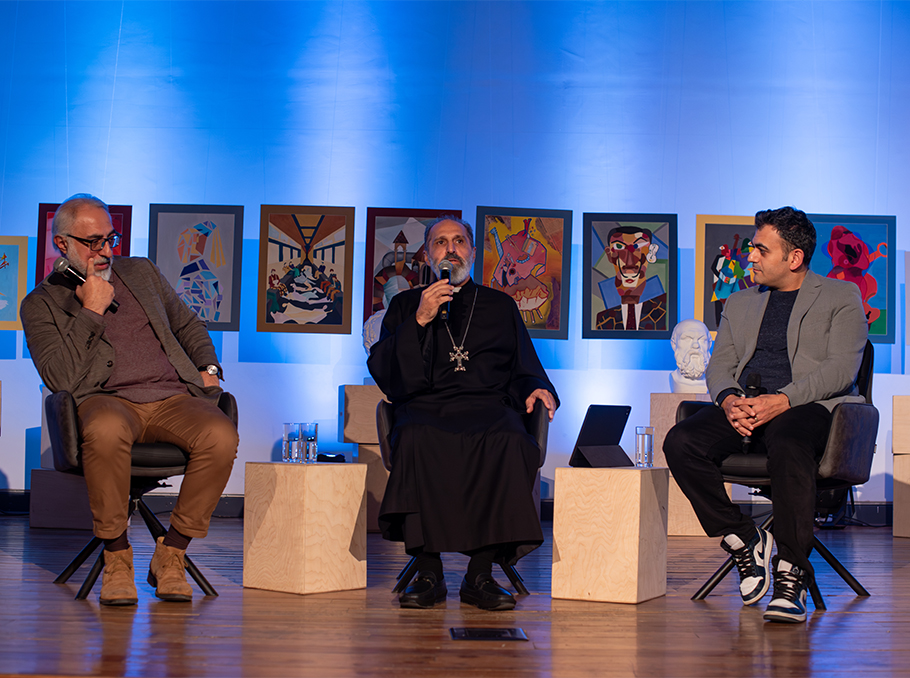
We’ve had situations where, during admissions, the children didn’t understand the teacher’s oral instruction but then immediately understood the same when they listened to its recording from a screen. In other words, the artificial world is becoming more real to children than the real world. A person no longer knows where they belong in the real life and the artificial world, and huge breaks are emerging in human life.
Aram Mehrabyan: I think the end of the 19th century marked the end of the warmest love—the union of science and truth, because science has turned its back on truth. It chose another partner—power, authority. Pure science no longer seeks truth; its purpose is no longer to approach or recognize it.
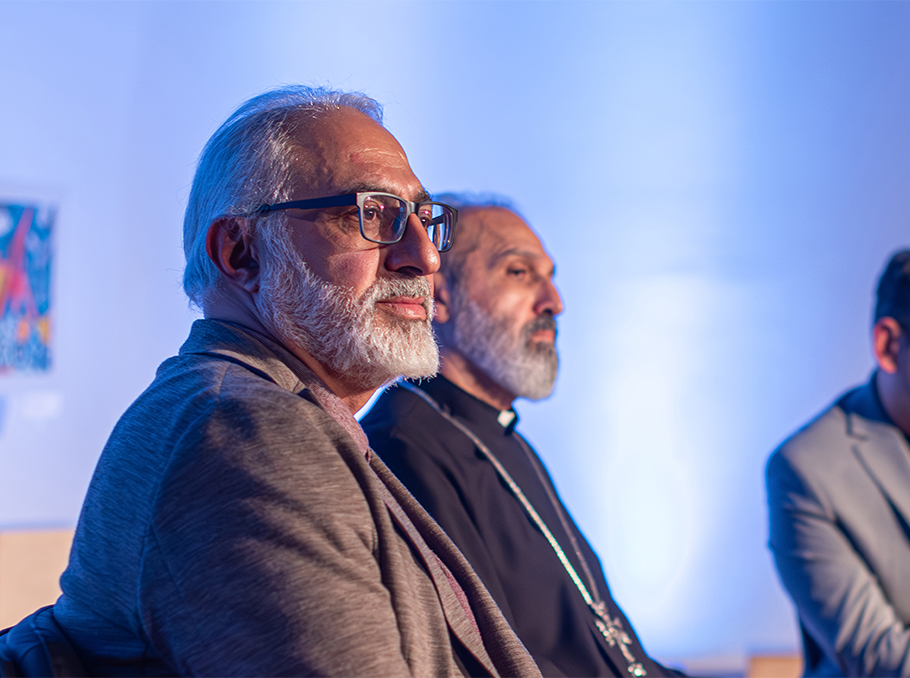
We think of the individual as an undivided entity, but it has long been divided—the individuum has become a dividuum. We need educational programs that will restore the whole person—emotional, sensitive, and rational. There must be harmonious work between these aspects.
Unfortunately, today, the rationalistic attitude toward the world has led to the use of only those tools that reach rational logic. The emotional, especially sensitive components of any phenomenon are diminishing, and we will face very serious problems here.
Narek Margaryan: It’s crucial that we maintain a conservative approach to education, as it is the most fragile, yet most influential system.
The rush to change textbooks based on political demands and trivial agendas should be limited, and any change in this area should be approached seriously and cautiously.
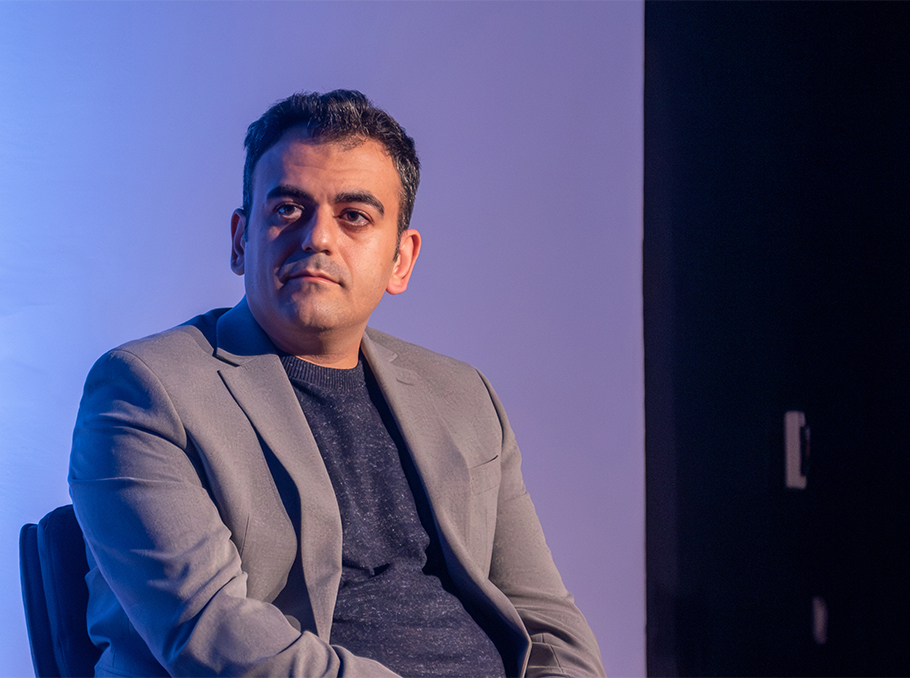
One of the most important things is also setting an example at home. If we sit at home with our phones in hand, it’s guaranteed that our children will replicate this behavior. If we read books at home, then they will replicate that behavior. I’ve tried this myself several times. We have this very powerful lever—our own example—and we should use it to positively influence others.
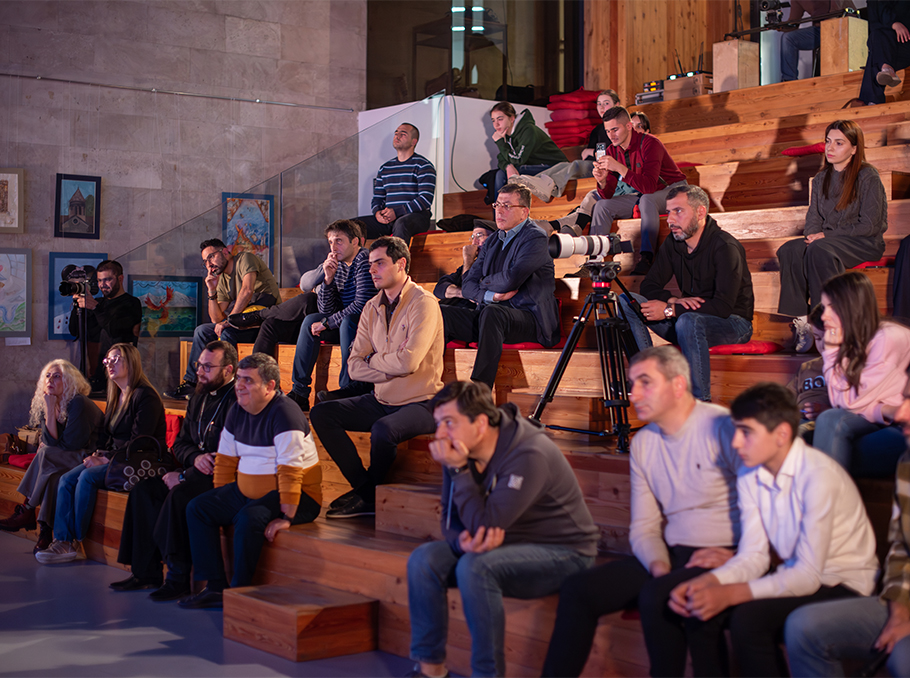
Aram Mehrabyan: The fate of our nation over millennia has proved one thing: our legitimate existence on this earth and its validation is culture. If no culture is created through all the work of technology, science, and media, then it is meaningless. To me, a person is equal to a creator, and today everything is being done to deprive us of that.
The Loss of the Human and the Imperative of Asking the Right Questions
Fr. Mesrop Aramian: The mechanization of humans is evident. People are losing a number of crucial qualities. The entire existential world of the human being is in an incomprehensible state.
For centuries, the concept of a human being has been understood as a creature with certain virtues, but now talking about those virtues has become redundant. The human being is turning into an incomprehensible being, and now we are talking about reprogramming humans, and eventually, the question will be raised: should such a being even exist or not? These are widely circulating scenarios that we are approaching at a terrifyingly fast pace.
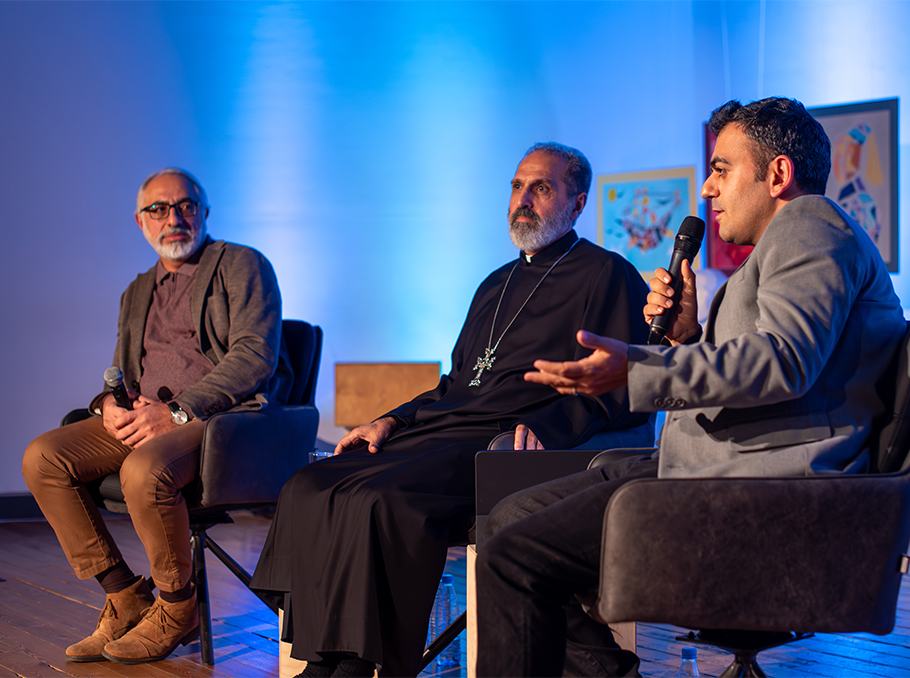
We have lost the understanding of the human being, the human being as an image and likeness of God. We do not understand what society is, what a nation is, what unites people. Today, we face a profound issue in defining ourselves from a perspective of values.
Aram Mehrabyan: The Greek word "κρίσις" (krisis), which means crisis, translates to “power of decision-making.” For some reason, in our language, it has obtained a time measurement, and we keep postponing that decision. Now is the moment when each of us must ask not in the third person, as Kant once said, “What is a human?” but in the first person: "Who am I?" and the next question: “Who are we?” This is a terrifying question. Do we have it on our agenda.
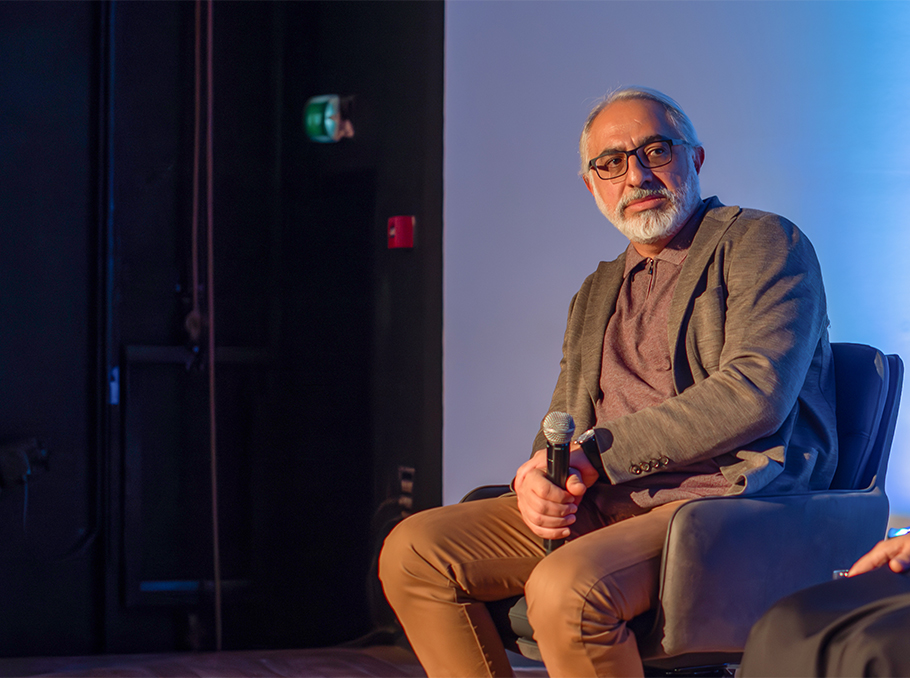
Human history, especially in recent times, has been directed towards the external world. We have understood that the universe is infinite. Very well. The human inner world is also a universe, an infinite universe. In that realm, these technologies will not function; different technologies are needed to penetrate and understand that inner infinity. Do we have this question on our agenda? I don’t think so. We have very easily closed our inner world and believe that all solutions must come from the external world.
Each of us must have the will to make decisions without postponing them and ask ourselves, "Who am I?"
The Path to Solutions—Inward
Fr. Mesrop: Today, the problem is finding ourselves. In his work The Book of Lamentations, Narekatsi says, “I gathered myself within myself.” Even in his time the issue of human distraction was sharply raised, but especially today, we have the problem of gathering ourselves; otherwise, we are already scattered across infinite space. This is what spiritual knowledge speaks about. The purpose of spirituality is for a person to find themselves. God became man to find that lost human, and it can be said that Christianity was humanity’s deepest discovery, because humanity had lost itself in the hedonistic worldview of the ancient world—pleasures and various forms of human distortions.
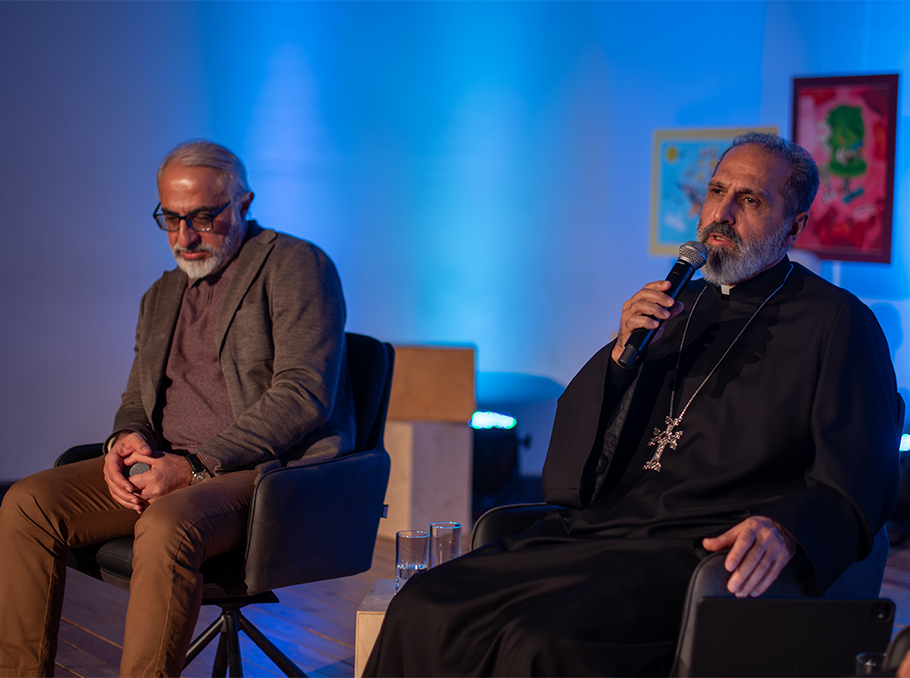
In human life, it is very important to refrain from certain things. If a person does not have the ability to self-limit, which is one of humanity's core virtues, then, according to millennia-old conceptions, the person is simply damaged.
A person must be able to manage their desires. And in this way, we must educate our children from an early age and, most importantly, we must embody it ourselves and show this by personal example.
We must also understand for what reason we limit ourselves. If there is no great idea, no great purpose, no meaning to life, then these limitations will not work. They have taken away or are trying to take away that meaning from us, and when life loses meaning, giving in to pleasures becomes an inevitable consequence. If a person loses God, self-defense, self-centeredness, and selfishness inevitably follow.
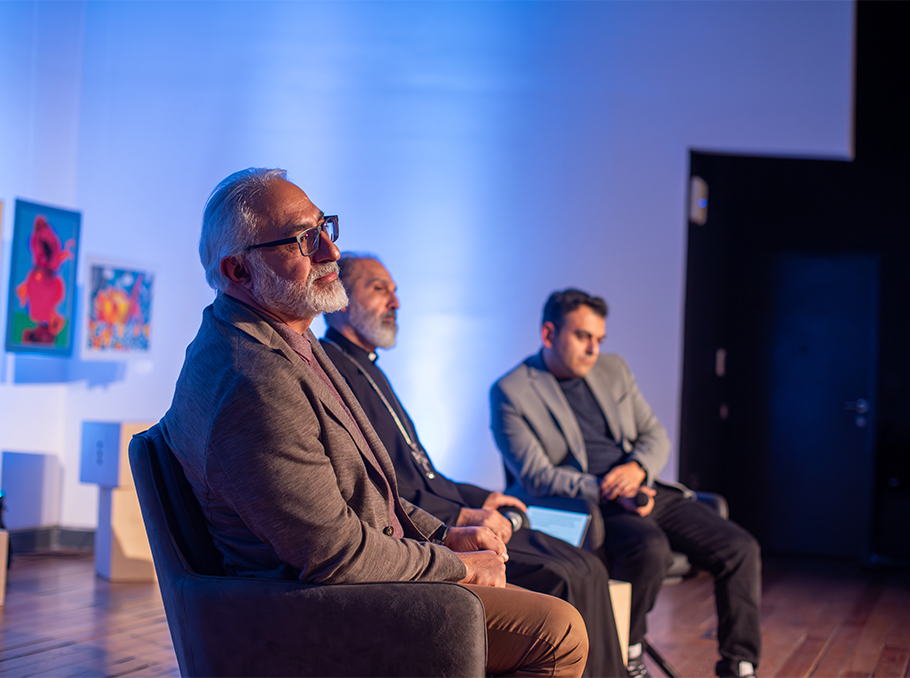
In order for humans to see the world around them correctly, they must first find themselves. We need healthy asceticism; we must be able to rein in ourselves, and in the end, humanity’s greatest victory is victory over oneself. That is why Christianity exists, that is why spiritual awareness exists, and that is the most important issue facing humanity today.
Written and photographed by Gayane Yenokyan